Healing from a breakup can be incredibly challenging, as the emotional turmoil often leaves individuals grappling with feelings of loss and despair. For many, the end of a relationship signifies not just the loss of a partner, but the shattering of dreams and future plans, leading to anxiety and sadness. They may experience a profound sense of loneliness and a questioning of self-worth. Understanding the psychological and emotional factors at play can provide insights into the intense pain felt during these separations and guide them towards healthier relationship choices in the future.
Key Takeaways:
- Emotional Attachment: The deep emotional bonds formed during a relationship can lead to intense feelings of loss and grief when it ends, triggering a strong sense of heartbreak.
- Fear of Loneliness: Breakups often evoke fear and anxiety about being alone, which can amplify feelings of sadness and lead to a sense of isolation.
- Identity Crisis: Many people tie their identity to their relationship, and the end of it can create confusion and a sense of loss regarding one’s self-worth and purpose.
Loss of Companionship
While relationships often become a source of comfort and support, the end of one can lead to a profound sense of loneliness. They may have relied on their partner for emotional support, companionship, and shared experiences, creating a deep bond over time. When that connection is severed, individuals can feel adrift, losing not only a romantic partner but also a close friend and confidant. This sudden absence can amplify feelings of isolation and sadness, making it challenging to navigate daily life without the familiar presence that once brought joy and stability.

Emotional Pain and Distress
The end of a relationship often leaves individuals grappling with profound emotional pain and distress. They may experience feelings of sadness, anger, and confusion, which can disrupt their daily lives. For some, the loss of companionship triggers a strong sense of grief, akin to mourning the death of a loved one. This emotional turmoil can lead to symptoms of depression, anxiety, and loneliness, making it difficult for them to find solace in everyday situations. Understanding that these feelings are a normal response to loss can help individuals navigate the healing process more effectively.
Disruption of Future Plans
Some individuals experience breakups as particularly devastating due to the disruption of future plans they envisioned together. When a relationship ends, it shatters dreams and aspirations that were once intertwined, leaving a sense of uncertainty and loss. She may feel as though the plans they meticulously crafted—whether related to travel, family, or careers—have evaporated overnight. This abrupt shift can lead to feelings of instability and anxiety, as they grapple with a future that now seems bleak without their partner by their side.
Change in Identity and Routine
When a relationship ends, individuals often face a significant shift in their identity and daily routines. He, she, or they may have intertwined their lives with their partner, leading to a shared sense of self that is suddenly disrupted. This transition can evoke feelings of loss, as familiar habits and social circles may no longer apply. Adjusting to singlehood requires rebuilding one’s identity and discovering new routines, which can be a daunting and painful process. This upheaval often intensifies the emotional toll of breakups, making the path to healing more complex.
Feelings of Rejection
One of the most profound effects of a breakup is the overwhelming sense of rejection it can incite. When a relationship ends, individuals often perceive this as a personal failure, leading to deep feelings of unworthiness and self-doubt. He may question his value, she might doubt her attractiveness, and they may find themselves replaying moments from the relationship, searching for answers. This emotional turmoil can amplify feelings of loneliness and despair, making it vital for them to understand that rejection is a common human experience rather than a reflection of their inherent worth.

Anxiety about Being Alone
If she has been in a long-term relationship, the prospect of being alone can evoke significant anxiety. This fear often stems from feelings of abandonment or inadequacy, leading to intrusive thoughts about loneliness and isolation. They may worry about how to navigate life without their partner, creating a cognitive loop that heightens anxiety levels. Such fear can impede their ability to heal and move forward, as they grapple with the emotional void that a breakup leaves behind. Recognizing these feelings as normal can be the first step towards regaining confidence and independence.
Overwhelming Grief Process
Keep in mind that the end of a relationship can trigger a profound grief response, akin to mourning a significant loss. She may experience waves of sadness, anger, or confusion, which can disrupt her daily life. He might find himself reminiscing about shared moments, intensifying feelings of loneliness. This depth of emotion often stems from a sense of identity intertwined with the partner, making the separation feel even more devastating. They may need to allow themselves time to grieve, recognizing that this process is both natural and necessary for healing and eventual acceptance.
Negative Impact on Self-Esteem
Your self-esteem can take a significant hit following a breakup, as individuals often internalize the end of a relationship as a personal failure. He or she may begin to question their worth, feel unlovable, or dwell on perceived flaws that contributed to the separation. This lowered self-esteem can lead to a cycle of negative self-talk, making it challenging for them to engage in future relationships. Building a strong sense of self-worth is imperative for recovery, as it allows individuals to view themselves positively and approach new connections with confidence and resilience.
Difficulty with Moving On
Keep in mind that for many individuals, moving on after a breakup can feel daunting. They may experience lingering thoughts and emotions tied to the past relationship, making it difficult to envision a future without their former partner. This struggle often stems from a sense of loss—both of companionship and shared experiences—forcing them to confront their identity outside the relationship. They might find it challenging to let go of hope for reconciliation or grapple with feelings of rejection or inadequacy, further complicating their emotional recovery and hindering their ability to embrace new beginnings.
Social and Family Changes
To navigate a breakup, individuals often face significant social and family changes that compound their emotional distress. He or she may find their social circle shifts as mutual friends pick sides, leading to feelings of isolation. Additionally, family dynamics can become strained, especially if family members have grown attached to the partner. They may also need to cope with altered traditions or gatherings, which can serve as painful reminders of what was lost. This upheaval in their social and familial landscape can amplify feelings of sadness and disconnection, making the healing process more challenging.
Challenge of Healing Time
For many individuals, the healing process after a breakup is fraught with challenges. They often find that emotional distress can linger, affecting their ability to concentrate, engage socially, or even enjoy activities they once loved. She may experience waves of sadness and loneliness, making it difficult to envision a future without her partner. Over time, they must navigate their complex feelings, allowing themselves the space to grieve and gradually rebuild their sense of self. Acknowledging that healing is not linear can foster patience and understanding as they work through their emotional wounds.

Potential for Lingering Feelings
Once again, the aftermath of a breakup can leave individuals grappling with unresolved emotions. He or she may find themselves stuck in a cycle of reminiscence, struggling to let go of shared memories and connections. These lingering feelings can manifest as longing or regret, overshadowing their ability to move forward. They might even question their worth or the validity of their next romantic endeavors. Understanding that these emotions are a normal part of healing can help individuals navigate this challenging period and eventually embrace the opportunity for growth and new beginnings.
Reflection on Relationship Flaws
Many individuals find themselves grappling with the flaws that surfaced during their relationship after a breakup. They often reflect on unmet needs, communication breakdowns, and differing values that may have contributed to the dissolution. This introspection can leave them feeling disheartened, recognizing patterns that hindered their connection. By acknowledging these issues, she can gain valuable insights into what she desires in a partner and relationship, fostering personal growth. Ultimately, this process empowers him to make more informed choices in future relationships, promoting healthier and more fulfilling connections.

Fear of Repeating Mistakes
After a breakup, individuals often grapple with the haunting fear of repeating past mistakes in future relationships. This anxiety can stem from self-doubt, as they question their judgment in choosing partners and reflect on the warning signs they may have ignored. She may wonder if she will inevitably fall into the same patterns, while he might feel trapped by a cycle of heartache. This pervasive fear not only hinders their ability to embrace new connections but also amplifies the emotional turmoil surrounding the end of their previous relationship.
Encountering Reminders Everywhere
All individuals who have experienced a breakup often find themselves surrounded by reminders of their past relationship. He may stumble upon a favorite café, she might see a movie they once enjoyed together, and they could hear a song that holds special meaning. These triggers can reignite grief and longing, compounding emotional pain. As reminders flood their daily lives, it becomes challenging for them to move forward, making it necessary to develop coping strategies and create new associations to help mitigate the impact of these persistent memories.
Rebuilding Trust Issues
All individuals who experience a breakup often find themselves grappling with trust issues in future relationships. He or she may question the intentions of new partners, fearing that past betrayals will repeat themselves. This can lead to heightened anxiety and prevent the formation of meaningful connections. To rebuild trust, they must first focus on self-reflection, understanding their own vulnerabilities, and recognizing patterns in previous interactions. By communicating openly and setting healthy boundaries, individuals can gradually re-establish trust, allowing them to move forward with a renewed sense of security and emotional openness.
Impact on Friendships
Now, navigating the aftermath of a breakup can put a strain on one’s social circle. He or she may feel isolated as mutual friends are caught in the middle, leading to awkward situations or even divisions. They might struggle to find their place within their social group, causing feelings of loneliness or abandonment. The emotional fallout from a breakup can also make individuals less available or open to friendships, impacting their support system during a vulnerable time. Understanding this dynamic is vital for both individuals and their friends to maintain connections despite personal upheavals.
Changes in Living Situations
Once again, a breakup can lead to significant changes in living situations that contribute to emotional distress. When she moves out of a shared home, or he faces the prospect of adjusting to life alone for the first time, these tangible changes can amplify feelings of isolation and grief. They may be forced to confront not only the loss of their partner but also the loss of a familiar environment, which can heighten anxiety and sadness. The disruption of routines and the physical reminders of the past relationship often make the process of healing more challenging.
Financial Implications
Unlike the emotional upheaval of a breakup, the financial consequences can also weigh heavily on an individual. She may find herself facing unexpected costs, such as legal fees for divorce or the expense of maintaining two separate households. He might struggle with the division of assets and potential alimony payments, which can lead to financial strain. They may also experience a decrease in their standard of living, forcing them to reevaluate their expenses and financial goals. These financial pressures can exacerbate feelings of anxiety and insecurity, making the process of healing even more challenging.
Closure Can Be Elusive
Despite the common desire for closure after a breakup, it often remains out of reach for many individuals. He or she may find themselves replaying conversations or seeking answers that never come, which can lead to prolonged grief and confusion. They might struggle to accept the relationship’s end, leading to cycles of rumination and emotional distress. This lack of closure can hinder their ability to move forward, making it necessary for those experiencing a breakup to find healthy ways to process their feelings and bring a sense of resolution to their emotional turmoil.
Summing up
Taking this into account, the end of a relationship can feel devastating due to the emotional investment individuals place in their partners. She often experiences a sense of loss and grief, leading to feelings of sadness and depression. They may struggle with an identity shift and self-worth issues, as romantic relationships can significantly shape one’s self-perception. Additionally, the social and routine changes that accompany a breakup can further impact mental health. Understanding these factors can help individuals navigate their emotions and focus on forming healthier, more resilient relationships in the future.






Leave a Reply
You must be logged in to post a comment.